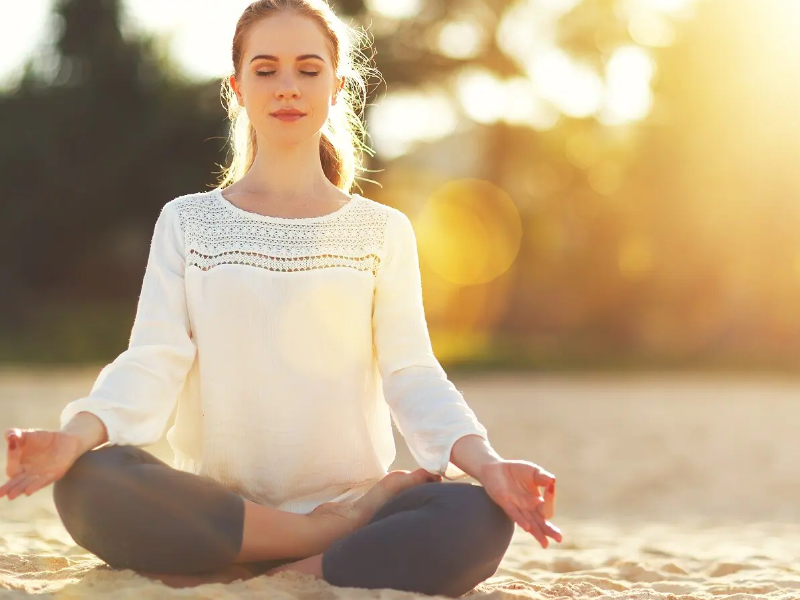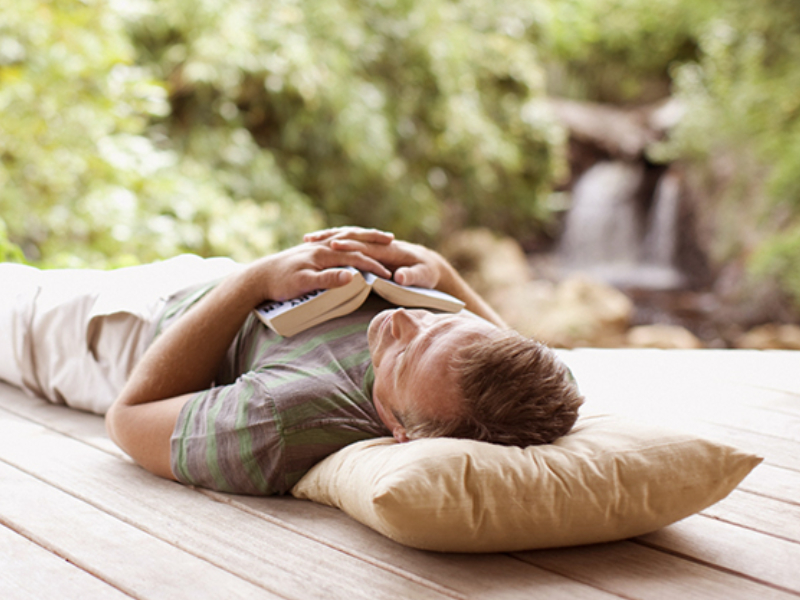Health and WellnessSponsored Stories
The 7 Types of Rest
More than a good night's sleep, here's how to restore and rejuvenate
As we mark more than two years into the pandemic, burnout is becoming an issue in many workplaces and in people’s lives. So often, when our mood is low or every task starts to feel like a chore, it can be tempting to stay in bed and throw the duvet up over our heads. And while a good night’s sleep is always a great starting point, have you ever realized you can sleep and sleep and not feel rested?
Sleep is just one way our bodies rejuvenate. But it could be that your body is craving a different type of rest.
According to American physician Dr. Saundra Dalton-Smith, there are seven different types of rest we need to address to avoid chronic exhaustion. The author of Sacred Rest notes that sleeping or lying on the couch binge-watching Netflix only addresses our need for physical rest.
But unless we seek to tackle other areas of fatigue in our lives, lying about will not actually restore us.
Physical Rest
This is the type of rest we usually think about when we are fatigued, which equates to sleep or giving your body a break. Dr. Dalton-Smith notes the astounding amount of literature written on the importance of a good night’s sleep over the past decade, and yet “we’re just as exhausted now as when we started that conversation.”
Spiritual Rest
Most of us require a deep sense of belonging outside of the physical world. Spiritual rest can come in the form of prayer and meditation. But can also be triggered by being part of a wider community.
Social Rest
Many people go to workplaces or spend time with family or friends who drain their energy. Social rest isn’t just about finding time alone, although that can help if you are exhausted from being around people. But you can also achieve social rest by choosing social events carefully, so you “surround yourself with positive, supportive people,” says Dr. Dalton-Smith.
Mental Rest
At work or in life, we’re constantly bombarded with information and the need to make decisions or respond to events outside of our control. Mental rest can be achieved by scheduling mini breaks in the day to quiet your mind or through daily meditation. If you’re the type of person whose active mind keeps them awake at night, try keeping a notepad beside your bed to write down any nagging thoughts.
Emotional Rest
People who crave emotional rest are often those who serve others, dislike confrontation and say yes to helping someone, even when they don’t want to do something. As a result, managers, parents, and caregivers are prone to emotional exhaustion. In the quiet hours, these people often feel unappreciated, taken for granted, and exhausted, says Dr. Dalton-Smith.
Taking time to express one’s emotions authentically, such as through counselling, can be rejuvenating. Eliminating people-pleasing behaviour is also an important means of restoration.
Sensory Rest
In our highly technological world, we’re constantly bombarded with pinging phones, traffic horns, and flashing lights on screens, all of which can cause sensory overload and make us feel exhausted. So be purposeful about turning off technology at night, switching off the car radio, and finding places to retreat where your senses aren’t under attack.
Creative Rest
Dr. Dalton-Smith describes creative rest as taking in beautiful scenery or spending time enjoying the arts. Then, at work, surround your desk with images and patterns that are inspiring. These things restore our creative energy and push us to be innovative, experiment, and think outside the box.
MORE INFORMATION
Book your next retreat on a discount through CFOne visit here.
Discover online yoga visit here.
Schedule an appointment with a counsellor visit here.
Clubs and sports (social rest, creative rest) visit here.

















